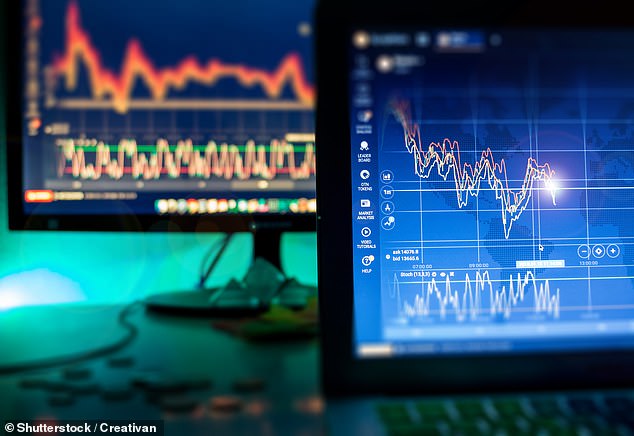[ad_1]
Are equities on a new plateau, at base camp for a further climb? Ultimately, the justification for share prices must be the underlying profitability of the companies concerned and, on both sides of the Atlantic, all eyes will be on the rash of company results coming in the days ahead.
Here it’s a big week, with results from HSBC, BAE, GSK, AstraZeneca, Rolls-Royce, Unilever and more.
What the analysts will be looking for, as always, is how much the news is already in the market, and where are the surprises, welcome and unwelcome.
But step back from individual companies and a broader message may emerge. It’s whether what is happening confirms that the world economy is securely growing despite everything that has been thrown at it.
The markets will also be looking at what is happening to the so-called Magnificent Seven in the US – Alphabet, Amazon, Apple, Meta, Microsoft, Nvidia and Tesla, which together account for a third of the S&P 500 index.
We have had results from Tesla, which were unsurprisingly glum, and from Alphabet, parent of Google, which were pretty upbeat. We’ve got Meta (Facebook’s owner) and Microsoft on Wednesday, and Apple and Amazon on Thursday.
Then it’s late August for the most valuable of all, chip maker Nvidia. Again, from a trader’s point of view, the stories are specific to the companies themselves, but what matters for the rest of us is what it says about the world economy more generally.

Growing pains: Are equities on a new plateau, at base camp for a further climb?
Here, there are two puzzles. It’s possible that the tariff ructions will do serious and lasting damage to the global economy, but it doesn’t seem to have done so to date. Now, that may change and we don’t yet have a trade deal between the US and the EU. But so far, all seems fine.
That raises a huge question. If anyone had said a couple of years ago that the whole movement towards cutting trade barriers would be reversed, most of us would have expected really serious damage to the multinational corporations reporting right now.
But it seems that was wrong. Maybe, and this is the first puzzle, the new rough and ready trading rules that Donald Trump is imposing on the world are better.

The first puzzle: Maybe the new trading rules Donald Trump is imposing on the world are better
The other puzzle is where are we in the economic cycle? There does seem to be an inexorable ten-year cycle, in the sense that serious downturns seem to come through roughly every decade.
Often there is a mid-cycle pause and you might expect that now. But maybe that won’t happen this time. Maybe growth will soldier on, even taking on a new spurt. That’s the thing to look for next week. If these huge companies are on balance positive about their prospects, then the answer to those puzzles will be clear: the new world trading order is at least as effective as the old one, and we are into the second leg of a long upswing.
It will be the justification for shares going to all-time highs. And if, looking forward, global business seems to be getting a bit worried, then the rest of us should be worried too.
I remain positive about the markets. My main reason for that is how extraordinarily resilient big businesses have become. I don’t think the markets fully appreciated this, hence the meltdown when Trump’s tariffs were launched in April.
You could say companies do not become, and remain, big if they can’t cope when bad stuff is thrown at them. There have been a string of sad examples of firms that are a shadow of their former selves. But there are great recovery stories too, most recently from Rolls-Royce, so let’s see what its update is on Thursday.
What would be great to see happen would be for this strong equity market to help rebuild an investment culture. Britain’s FTSE 100 index is now up more than 10 per cent this year. Add in dividend income and a typical Footsie investor would be up about 12 per cent.
Past performance is no guide to the future, except that on a very long view it is, or at least has been over the past century and more.
And anything is better than seeing savings whittled away by inflation month after month, year after year.
DIY INVESTING PLATFORMS

AJ Bell

AJ Bell
Easy investing and ready-made portfolios

Hargreaves Lansdown

Hargreaves Lansdown
Free fund dealing and investment ideas

interactive investor

interactive investor
Flat-fee investing from £4.99 per month

InvestEngine

InvestEngine
Account and trading fee-free ETF investing
Trading 212
Trading 212
Free share dealing and no account fee
Affiliate links: If you take out a product This is Money may earn a commission. These deals are chosen by our editorial team, as we think they are worth highlighting. This does not affect our editorial independence.
[ad_2]
This article was originally published by a www.dailymail.co.uk . Read the Original article here. .

